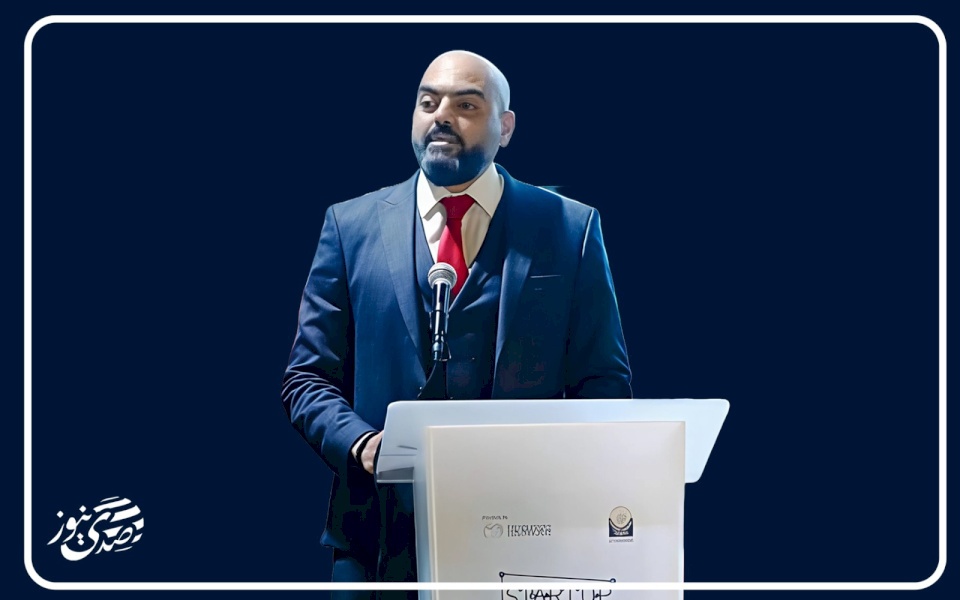
Bread... The Last Weapon of the Occupation
The weapon of starvation is no longer just one of the consequences of wars or the results of blockades, but has become in the Palestinian situation a declared and studied tool of the Israeli occupation to impose political equations on the ground.
Since the outbreak of the Israeli aggression on the Gaza Strip on October 7, 2023, with the complicity of the world's silence, the Palestinian people are witnessing the most horrific images of a systematic war on their means of livelihood, first in besieged Gaza, and then in the West Bank through a calculated economic strangulation.
Modern history has known major famines, some due to natural disasters like the 1921 famine in Russia, and some due to wars, as happened in the Bengal famine of 1943 when millions perished not due to food shortages but because of rising prices and the cessation of distribution due to British occupation policies. In Somalia and Sudan, the tragedy was repeated as a result of civil wars and the starvation of civilians as a war tool. But in the Palestinian case, especially in Gaza, we are facing a dangerous evolution of this weapon: an intentional siege and starvation, directed by explicit political orders from the occupation government, implemented through military and economic tools, targeting the very destruction of the components of life.
In Gaza, the occupation has imposed a complete siege since 2007, not just since the onset of the 2023 aggression, preventing the entry of food, water, medicine, and fuel, and deliberately targeting bakeries, markets, and warehouses. This was not just a side effect of the war, but an announced policy, clearly expressed by the leaders of the occupation: "No water, no food, no fuel." The result was catastrophic; a real famine hit the sector's inhabitants, especially in the north, where families were forced to eat animal feed after food supplies ran out, and then found themselves even without feed. Over 90% of children in Gaza suffer from diseases resulting from malnutrition, while diseases and epidemics have spread. Hunger here was not a product of an emergency war, but was central to a plan for silent extermination.
As for the West Bank, the occupation adopted a policy of economic blockade and financial strangulation. Trade movement was disrupted, barriers were closed, and movement between governorates was restricted. More dangerously, Palestinian clearance funds, which represent the main source of income for the national authority, were withheld, causing a severe financial crisis that deprived tens of thousands of families of salaries and led to rising poverty and unemployment rates and food insecurity.
Here, starvation is not a direct result of bombing or military sieges but is a "soft" yet deadly tool that Israel uses to break the resilience of the Palestinians and suffocate their national and economic will.
What is happening today in Palestine reminds us of the analysis by Indian economist Amartya Sen, a Nobel laureate, who proved that famines do not necessarily occur due to food shortages but rather due to "failure of entitlement", meaning depriving people of access to food or owning or purchasing it despite its availability. This is exactly what is happening in Palestine: food is available in the world, but it is besieged and prohibited from reaching Palestinians, whether by bombing crossings in Gaza or by preventing the disbursement of salaries in the West Bank.
In the face of this catastrophic reality, immediate action is required on multiple fronts. It begins with the political and diplomatic arena, where the issue of starvation must be referred to the International Criminal Court as a described war crime, not merely as a humanitarian violation. This necessitates breaking the silence of the official world and holding the occupation accountable for its legal responsibilities.
On a humanitarian and relief level, safe and open humanitarian corridors must be enforced under international supervision, ensuring the entry of food, medicine, and fuel unconditionally and ending the siege as a precondition for any UN action.
As for the national economic level, there is an urgent need for a Palestinian emergency plan to support local production, create job opportunities, and activate social solidarity networks, instead of being beholden to the Israeli economy or conditional aid. A Palestinian cannot endure if they become hostages to food, the market, and withheld money.
In the end, a huge responsibility lies on the shoulders of intellectuals, journalists, and creatives. They must confront the misleading narratives that justify the siege of Gaza and the strangulation of the West Bank, and raise their voices to reveal that what is happening is not just a traditional war, but a silent extermination campaign being waged against an entire people. The tragedy of starvation must be transformed into a global public opinion issue, just as famines in the past two centuries have witnessed the crimes of regimes and governments.
Starvation is not just an assault on bodies but on consciousness, dignity, and the right to exist. If everyone does not act today, starvation will write the future of the Palestinians as it has previously written the future of other peoples in blood, disease, and slow death. This is not a battle for bread... it is a battle for life.

Huckabee's Statements Reveal the Falsehood of Trump's Peace and Reinforce Religious Confli...

Licensed Occupation by Law

Whoever Does Not Plant Hope, Plants Departure...

Between "Here is Jerusalem" and "Here is Gaza" ... The Voice of a Nation and the Steadfast...

While some count the boos, Palestinians count their martyrs.. Paradoxes of the internation...

When the Palestinian Issue is Reduced to Gaza Management

Legally Licensed Occupation

